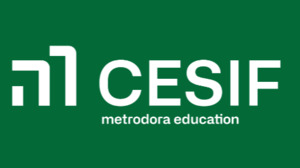
Our mission is to contribute to economic and social progress and continuous improvement of professionals in the pharmaceutical, biotechnological, food, chemical and cosmetic sectors—essential industries for the economy—by offering solutions to generate knowledge among the professionals in these fields
Pharmaceutical laboratories need to hire professionals capable of applying their functional knowledge responsibly in the areas of clinical R&D, pharmacoeconomics, pharmacovigilance and more.
Environment and structure of the pharmaceutical industry and CROs.
• Functions of the medical and scientific departments.
• Design, implementation and supervision of clinical trials.
• Pharmacovigilance.
• Data management.
• Registration and market access for medicines.
• Other scientific studies.
1. Introduction to the pharmaceutical industry and scientific basis for clinical research.
The Drug. Life Cycle of Medicines.
The national and global pharmaceutical industry.
Basic concepts on pharmacokinetics and pharmacodynamics.
Toxicology, toxicity assessment. Clinical trial design.
Investigational producto.
2. Clinical Trial, definition and types
The Clinical Trial: definition and classification.
Adaptive Clinical Trials. Translational research.
Clinical Research in the biotechnology industry.
Clinical Research in pediatrics and rare diseases.
CNS Clinical Research.
Clinical Research in oncology.
Clinical Research in advanced therapies.
Phase I units.
Clinical Research in primary carec.
3. Regulatory environment of the Clinical Trial.
Ethical and legal aspects of Clinical Trials: Declaration of Helsinki and Good Clinical Practice standards.
Legal aspects of Clinical Trials (National and European Regulations).
Personal data protection.
*Workshop FDA Regulatory Seminar and ClinicalTrials. Gov
Clinical trial essential documents and essential sponsor documents: Protocol, Investigator’s Brochure.
4. Structure and planning of Clinical Trials.
Sponsor: structure, organization and management plan for clinical trials. Study SOPs. Strategic alliances between companies.
Pharmaceutical company versus CRO. Bid Defence.
Study management plans. Monitoring plan, data management plan, security plan, communication plan.
Metrics in Clinical Research.
The clinical trial subject. Subject information sheet and informed consent. Subject recruitment and retention strategies. Other materials used for subject recruitment.
Feasibility study. Site selection and investigators participating in the clinical trials (pre-study visits)
Outsourcing of services. Identification and management of third parties.
Internal training of the monitoring and the investigator teams (investigator meetings).
Administrative Management CEICs and AEMPS - initiation of a clinical trial.
* Workshop Administrative Management CEICs and
AEMPS - practical session on trial start-up.
The Clinical Trial contract. Legal and economic aspects.
5. Start-up, monitoring and completion of clinical trials
Site initiation visits (preparation, visit and follow-up).
Sites activation.
Administrative Management CEICs and AEMPS during the development of the clinical trial and at the end of the study.
Monitoring visits (preparation, visit and follow-up).
* Workshop Site initiation visits and Monitoring Visits (preparation, visit and follow-up).
Risk-Based Monitoring.
Collection and management of clinical data.
Clinical Trial drug management.
Payment management during the study.
Close-out visits (preparation, visit and follow-up).
Trial documentation and archiving.
Management of the Clinical Trial from the hospital (clinical study coordinator and data entry).
6. Pharmacovigilance and quality assurance
Prevention of fraud and/or scientific misconduct.
Audits and inspections on clinical trials.
Pre-authorization drug safety (I): legislative basis, adverse events, DSUR.
Pre-authorization drug safety (II): management of safety information in clinical trials, protocol, contracts, practical information.
Post-authorization pharmacovigilance (I): legislative basis generalities, practical information.
Post-authorization pharmacovigilance (II): adverse reaction suspicions, risk management plans, PSUR,
signal management.
*Workshop Analysis of 2 cases of suspected adverse events pre- and post-authorization.
7. Data management and analysis. Interpretation of results
Data Base Lock (Data Management).
Basic Concepts of Biostatistics.
Statistical analysis plan and interim and final study reports.
8. Pharmaecopidemiology, pharmacoeconomics and market access
Epidemiological studies, regulations and guidelines.
Descriptive and analytical epidemiology.
Analysis of Biases and interpretation of diagnostic tests.
Introduction to the economic evaluation of health care interventions. Types of analysis of the economic
evaluation of interventions.
Existing methodologies for conducting an economic evaluation: modeling and clinical trials/observational designs.
Spanish health care organization (public health care, private health care and agents).
The role of institutional relations in the pharmaceutical industry.
Evolution of registration and market access strategies. Drug pricing and financing (therapeutic positioning reports).
*Workshop Market Access.
9. Medical Devices
Introduction to Medical Devices: definitions, types, notified organizations.
Legislative framework for Medical Devices.
Development and documentation of a Medical Device: clinical investigation plan, investigator’s manual.
Monitoring of clinical trials with medical devices: differences vs. drugs .
Medical device management: receipt, custody,
storage, accounting, recall. Safety: ADCs, device deficiencies, protocol deviations, MDCG regulations.
*Workshop Medical Devices.
10. Project Management.
The concept of planning.
Project Management in clinical trials.
Project Management skills and effective project management tools.
Peculiarities of project management depending on the company.
High impact presentations.
11. Personal development
Careers (LinkedIn, personal branding).
Effective presentations, communication.
Teamwork, cooperation, time management.
Students who successfully complete the Master’s Degree (resolution and delivery of all the practical cases proposed and completion of the Final Master’s Degree Project with pass mark) will receive the corresponding diploma of the Master’s Degree in Supervision and Management of Clinical Trials of CESIF.
Persons with higher degrees, preferably in health sciences (biology, pharmacy, medicine, chemistry, etc.) who wish to move quickly into managerial roles related to clinical development and medical and scientific departments, both in pharmaceutical laboratories and in the professional structures of any local or international contract
research organisation (CRO) with a presence in our market.
Otros cursos